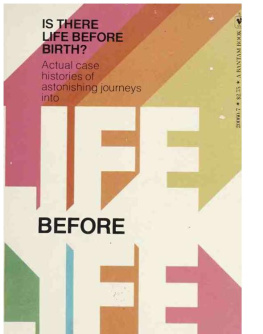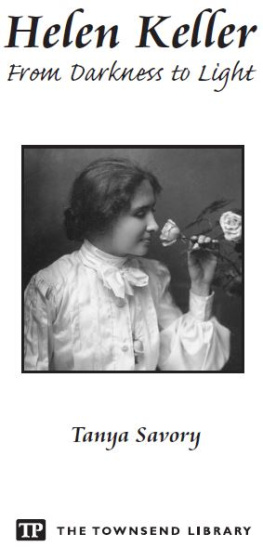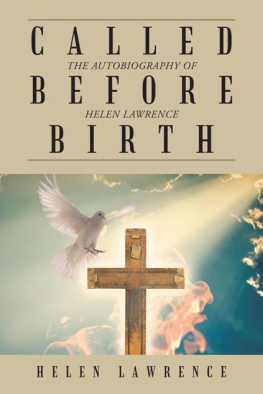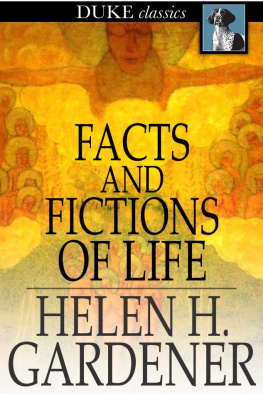PREFACE
There are at least two sides to every question. Usually there are several times two sides; or at least there are several phases in which the question has a different aspect.
I am led to state these seemingly unnecessary truisms because I have been confronted by hearers or readers who assumed, since I had presented a certain phase or manifestation of heredity in a given article or lecture, that I was intending to argue that a fixed rule of transmission would necessarily follow the line I had then and there drawn.
Nothing could be farther from my idea of the workings of the law of heredity.
Nothing could be more absurdly inadequate to the solution and comprehension of a great basic principle.
Again; an auditor or critic remarks that "We must not forget that we, also, get our heredity from God;" which is much as if one were to say, in teaching the multiplication table, "Remember that three times three is nine except, only, the times when God makes it fifteen." So absolute a misconception of the very meaning of the word heredity could hardly be illustrated in any other way as in the idea of "getting it from God."
Scientific terms and facts of this nature cannot be confounded with metaphysical and religious speculation without hopeless confusion as to ideas, and absolute worthlessness as to the results of the investigation.
The very foundation principle of Evolution, itself, depends upon the persistence of the laws of hereditary traits, habits and conditions, modified and diversified by environment and by the introduction of other hereditary strains from other lines of ancestry.
Of course, there are people who do not believe that Evolution evolves with any greater degree of regularity and persistence than is consistent with the idea of a Deity who is liable to change his plans to meet the prayers or plaints of aspiration or repentance of those who chance to beg or demand of him certain immunities from the workings of the laws of nature. But with this type of mentalitywith this grade of intellectual graspit were fruitless to pause to argue. They must be left to an education and an evolution of a less emotional and imaginative cast before they will be able to take part intelligently in a scientific discussion even where the merest alphabet of the science is touched, as is the case in these essays. They must learn a method of thought which keeps inside of what is, or can be, known and demonstrated, and cease to vitiate the very basic premises by injecting into them what is merely hoped or prayed for. The two phases of thought are quite distinct and totally dissimilar in method.
The essays here collected, which do not deal directly with heredity and its possibilities, have been included in the book because of the repeated calls for them upon the different magazines in which they appeared and because they are rightly classed among the facts and fictions of life with which we wish here to deal.
That most of them touch chiefly the dark side of the topics discussed is due to the fact that they were one and all written for a purpose in which that method of handling seemed most effective. That there is a brighter side goes without saying; but when a physician is writing a lecture upon cholera or consumption he does not devote his time and space to pointing out the indubitable fact that many of us have not, and are not likely to contract, either one.
In pointing out and commenting upon certain social and hereditary conditions and evils, which it is desirable to correct or to guard against, and which it is all-important we shall first recognize as existing and as in need of improvement, I have, it is true, dwelt chiefly upon the evil possibilities contained in these conditions. I am not, therefore, a pessimist. I do not fail to recognize the fact that both men and conditions are undoubtedly evolving into better and higher states than of old. If one may so express it, these essays are the expressions of a pessimistic optimist,one who is pessimistic upon certain phases of the present for the present, and optimistic as to and for the future. Let me illustrate: The housewife who does not have the house cleaned because it stirs up a dust to do it, is in the position of those critics who insist that it is all wrong to call attention to abuses because abuses are not pleasant things to have held up to public gaze. Or like a physician who would say: "For heaven's sake don't remove that bandage from the broken skull to dress the wound or you will see something even uglier than this soiled and ill-arranged cloth. Trust to luck. Some people have recovered from even worse conditions than this without intelligent care and treatment. Let him do it."
I have often been asked how and why I ever chanced to think or to write upon these topics. "How can a woman in your station and of your type know about them?" It is always difficult to say just how or why one mind does and another does not grasp any given thing.
When I was a very young girl I heard a famous Judge read and discuss a series of papers which were then appearing in the Popular Science Monthly, and which were called "The Relations Of Women To Crime." I was the only person admitted to the Club, where the consideration of the papers took place, who was not mature in years and connected with one of the learned professions. I was admitted because I begged the privilege as the guest of the family of the Judge at whose house the Club met. More than any other one thing, perhaps, the thoughts and suggestions that came to mea silent and unnoticed childwhile listening to the discussions of those papers which hinted at the various possibilities of inherited criminal tendencieshearing the lawyers comment upon it from the point of view furnished by their court-room experiences, and the medical men from their side of the topic, as practitioners upon those who had inherited mental or physical diseases, and the educators from their outlook and experience with children and youths who had not yet begun an open criminal course but who showed in their tendencies the need of intelligent training to modify or correct their faulty inheritance,more than any other one thing, perhaps, this experience of my childhood led me into the study of anthropology and heredity. That other people have been interested in what I have written from time to time upon this subject, and that I was, for this reason, asked to present certain phases of it at the recent World's Congress of Representative Women, accounts for the publication of this book at this time. I presume it will be said that it is not "pleasant reading for the summer season." It is not intended for that purpose. It has been asked for by many teachers, college professors, students and medical practitioners, the latter of whom have shown extraordinary interest in its early issue and wide circulation, and for whose kind encouragement and aid I am glad to offer here renewed thanks.
I had intended to elaborate and enlarge and republish in book form "Sex IN Brain," but since there have been hundreds of calls made for it and since I have not yet found the time to combine, verify and arrange the large amount of additional material which I have been steadily collecting through correspondence with leading Anthropologists and brain Anatomists in England, Scotland, Germany, France and the United States and other countries, ever since they received, with such cordial and kindly recognition, the within printed essay, which they have had translated into several languages, I have concluded to include it with these, leaving it as it was abridged and delivered before the International Council in Washington in 1888.











